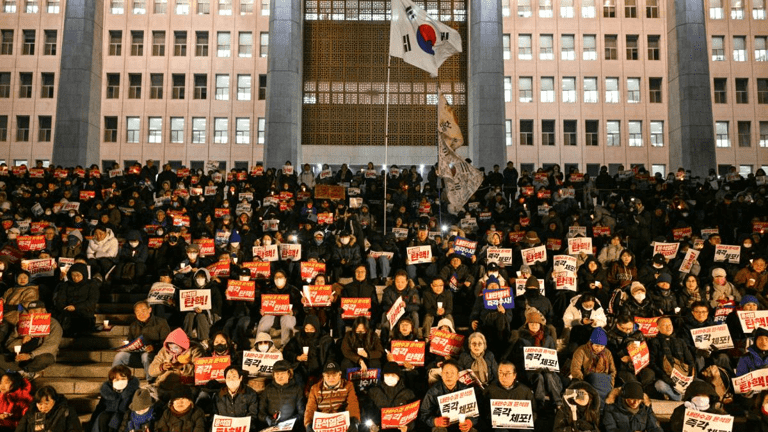South Korean President Yoon Suk-yeol sparked a political and social storm by declaring martial law on December 3, 2024. The measure, which granted broad powers to the military and restricted civil liberties, was justified as a response to alleged threats from “anti-state” elements and “communist forces” linked to North Korea. However, its implementation was short-lived and left deep implications for South Korea’s democracy.
The Declaration and Its Revocation
Hours after the declaration, the National Assembly, dominated by the opposition, voted to annul martial law, deeming it unconstitutional. Initially, President Yoon defended his decision but, under intense political and social pressure, opted to revoke the measure the same day. This episode has been described as South Korea’s greatest political upheaval since the 1980s.

Massive Protests and International Reactions
Thousands of citizens took to the streets in Seoul and other cities, demanding President Yoon’s resignation and condemning what they saw as an authoritarian act. Opposition leaders, such as Lee Jae-myung, denounced martial law and vowed to defend the country’s democratic values.
Internationally, countries like the United States, Germany, and the United Kingdom expressed concerns about the stability of South Korea’s democracy. Calls for a peaceful and lawful resolution to the crisis joined domestic demands for justice and accountability.
The Political Context
Yoon’s decision came amid growing political tensions, including corruption allegations involving his wife and a steady decline in his popularity. His administration has faced criticism for its conservative policies and polarizing approach to domestic and international issues.
Future Implications
The brief implementation of martial law has left Yoon in a politically weakened position. His opposition, emboldened by the event, may push for impeachment proceedings against him. Additionally, the episode has revived memories of authoritarian periods in South Korea’s history, underscoring the need to safeguard democratic institutions.
Conclusion
The incident has marked a turning point in South Korean politics, calling into question the stability of Yoon Suk-yeol’s government and the country’s commitment to democratic values. As the nation processes this event, Yoon’s political future and South Korea’s direction remain uncertain.